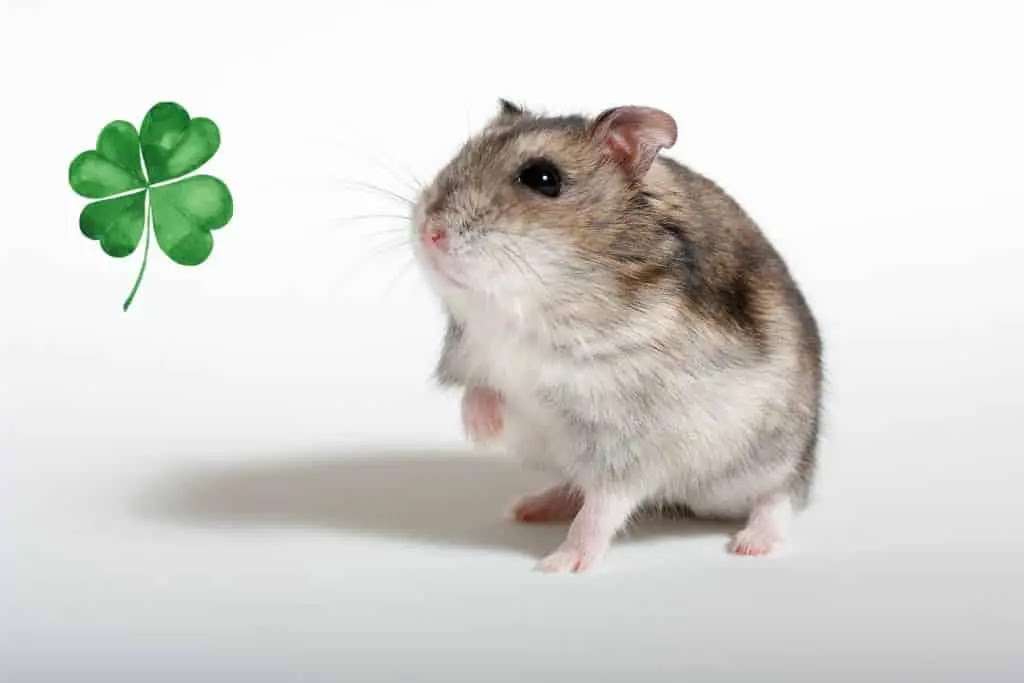Can Your Furry Friend Munch on Plantain? Unveiling the Benefits, Risks, and Safe Feeding Practices
Delving into the world of hamster care involves answering some critical questions. One such query is whether hamsters can indulge in the delightful goodness of plantain. This article aims to explore the perks, potential pitfalls, and the best ways to integrate plantain into your hamster's diet, ensuring a happy and healthy companion.

Getting Acquainted with Plantain for Hamsters:
Originating from Southeast Asia, plantain is a delightful fruit packed with carbohydrates, vitamin C, vitamin B6, potassium, and magnesium. While its nutritional profile is impressive, moderation is key due to its elevated sugar content. Consider introducing small, cooked pieces as an occasional treat, keeping it under 10% of their daily food intake.
The Upsides of Including Plantain in Your Hamster's Menu:
Feeding plantain in moderation can bestow various advantages upon your hamster, such as:
- Natural Energy Boost: The natural sugars in plantain provide a welcome energy lift.
- Digestive Support with Dietary Fiber: The fiber content aids in maintaining a healthy digestive system.
- Immune System Health: Loaded with vitamin C, plantain contributes to a robust immune system.
- Metabolism Support: Vitamin B6 helps in the efficient breakdown of fats and proteins.
- Muscle and Nerve Functionality: Potassium plays a crucial role in ensuring proper muscle and nerve function.
- Enzyme Production and Immunity: Magnesium contributes to enzyme production and supports the immune system.
For example, the vitamin C in plantain enhances your hamster's immune health, while the fiber facilitates digestion. Potassium ensures their muscles and nerves operate optimally, and magnesium aids in enzyme production and immune system function.
Navigating the Risks of Plantain Consumption:
While plantain offers nutritional benefits, overindulgence may lead to potential risks, including:
- Sugar-Induced Health Concerns: High sugar content can contribute to obesity and diabetes.
- Digestive Discomfort: Excessive fiber intake may result in diarrhea.
- Potassium Overload: An overdose of potassium can lead to muscle weakness.
- Intolerance to Rapid Introduction: Swift inclusion may upset their stomach.
- Toxins in Moldy Plantain: Moldy plantain can contain toxins, causing illness.
Feeding plantain in moderation and introducing it gradually is essential to prevent adverse reactions.
Recognizing Signs of Plantain-Related Ailments:
Keep an eye out for indicators of plantain poisoning, such as:
- Diarrhea
- Lethargy and Weakness
- Loss of Appetite
- Weight Fluctuations
- Hunched Posture
- Dental Issues from Sugar Intake
Swift recognition of these symptoms is crucial for prompt intervention.
Optimal Serving Sizes for Your Hamster's Pleasure:
Maintain a balanced diet by limiting plantain consumption to a few thin slices 1-2 times per week. Tailor the portions according to hamster breeds:
- Dwarf Hamsters: Feed no more than a 1-inch slice 1-2 times weekly.
- Syrian Hamsters: Feed no more than 2-inch slices 1-2 times weekly.
Ensure plantain makes up no more than 10% of their overall diet.
Variety is the Spice of Life: Alternatives and Supplements:
Explore hamster-friendly alternatives to plantain, ensuring a diverse diet:
- Apples: Rich in vitamin C and fiber.
- Blueberries: Packed with antioxidants.
- Carrots: A source of vitamin A for eyesight.
- Celery: A low-calorie snack with essential vitamins.
- Cucumber: A hydrating treat with abundant nutrients.
Complete your hamster's diet with reputable hamster foods, such as Oxbow Essentials Adult Rat and Mouse Food, Kaytee Fiesta Hamster Food, Supreme Tiny Friends Farm Reggie Rat Food, and Wild Harvest Advanced Nutrition Diet for Hamsters.
By following these guidelines, you can ensure your hamster revels in a diverse, nutritionally balanced diet, steering clear of potential health issues linked to plantain consumption. Your furry friend deserves nothing but the best – let the munching adventures begin! 🐹🌱


Nhận xét
Đăng nhận xét